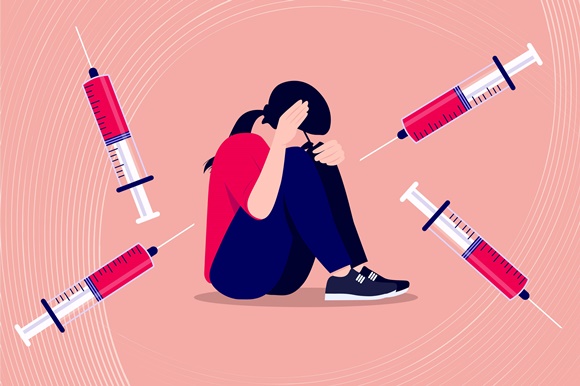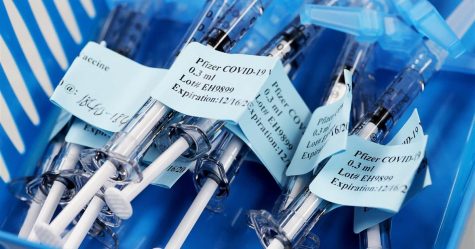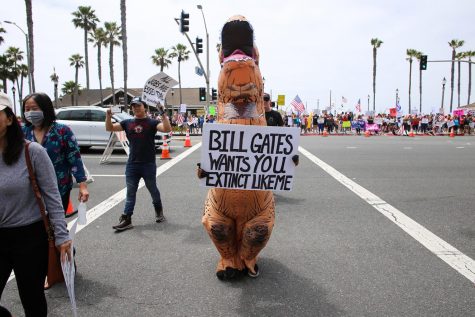Going Down the Rabbit Hole of Vaccine Hesitancy

Vaccine hesitancy is listed as one of the top threats to global health by the WHO.
A coronavirus vaccine is on the horizon, but many do not see it as a new beginning. Citizens around the world are wary of the vaccine, and many plan to not take it. According to a Pew Research Center survey, 39% of Americans reported that they’re “probably” or “definitely” not getting the vaccine, and the amount who said they were planning to get the vaccine fell from 72% in May to 60%. This hesitancy is higher among black Americans, who have been historically mistreated by the medical system: the same Pew survey found that only 32% of black adults will “probably” get the vaccine. The WHO has even listed vaccine hesitancy as one of the ten threats to global health in 2019. What’s driving this distrust?

These unprecedented times are likely to blame. “People are wary of misinformation and don’t really know who to trust anymore. The development of the vaccines at this rapid pace is unprecedented, and there is a significant amount of fear and confusion,” says Dr. Attila Hertelendy, a Florida-based expert in biomedicine and emergency and disaster management. As highlighted in the same PEW study, 78% of Americans are worried that the vaccine is being developed too quickly without adherence to safety precautions in an effort to get it out. Hertelendy further speculates that many Americans will choose to wait to take the vaccine, after seeing what happens to others who are inoculated.
Political polarization is also a likely driving factor in vaccine hesitancy, as reported by the Reuters staff. People are more likely to trust and take the vaccine if it is approved and distributed by a leader that shares their ideology. As tensions rise across party lines, distrust and misinformation spread.
Apart from the more common causes for concern, conspiracy theories about the vaccine are rampant. One such conspiracy, described by Jack Goodman and Flora Carmichael from BBC, revolves around the World Economic Forum (WEF). This theory is dubbed the ‘Great Reset’ after a real plan laid out by the WEF, and claims that “a group of world leaders orchestrated the pandemic to take control of the global economy,” and that Pfizer has been developing a COVID vaccine for 15 years. Followers of this theory believe that the vaccine will be used to depopulate the earth.

(REUTERS/Denis Balibouse)
These beliefs aren’t helped by prominent leaders, and things they say can easily be interpreted as sinister if they aren’t careful of their wording. For instance, Klaus Schwab, founder and executive chairman of the WEF, has said that “[t]he pandemic represents a rare but narrow window of opportunity to reflect, reimagine, and reset our world,” and has even
published a book in July called COVID-19: The Great Reset. And Bill Gates, on a TED Talk in 2010, said that “if we do a really great job on new vaccines, health care, reproductive health services, we could lower [the population] by, perhaps, 10 or 15 percent.” Gates’s comment refers to developing countries: improved healthcare will encourage people to have fewer children, because the child mortality rate will decrease. Thus, dangerous population growth in economically disadvantaged nations can be avoided. When looked at alone or taken out of context, these statements can be alarming.
A poll from YouGov also speculates that 28% of Americans believe that the vaccine will be used as a way to insert trackable microchips into citizens. This theory found its source in March when, as reported by Jack Goodman and Flora Carmichael from BBC, Gates said there could eventually be “digital certificates” showing who has and hasn’t

received a vaccine. Gates’ “digital certificate” refers to a study “into a technology that could store someone’s vaccine records in a special ink administered at the same time as an injection.”
The WHO estimates that 65-70% of people need to be vaccinated globally for herd immunity to be reached. As vaccines continue to be distributed, the true extent of vaccine hesitancy will be seen. But until vaccines are distributed to the public worldwide, experts warn of the spread of misinformation.

Analise is a senior at West Morris Central high school. During her junior year, she was a world news editor for The Paw. She has a passion for educating...
































